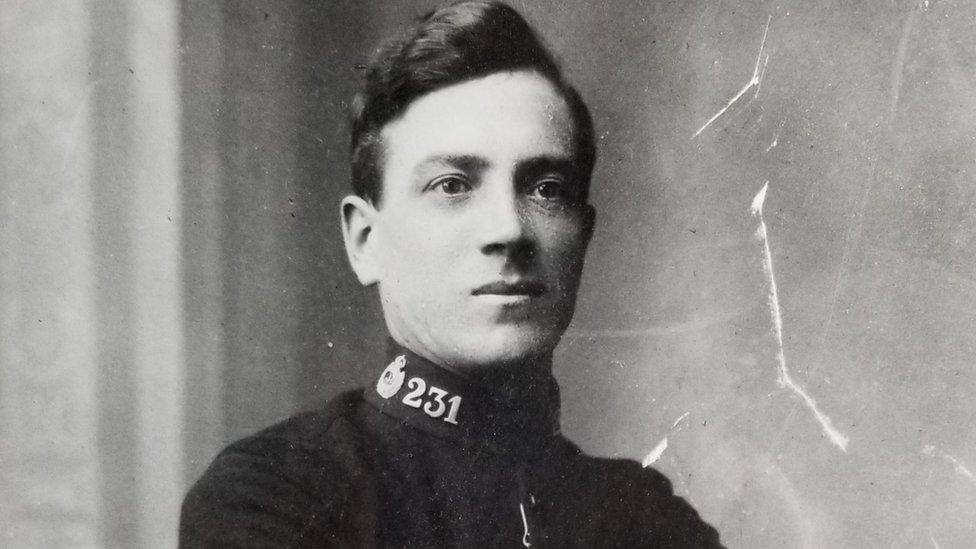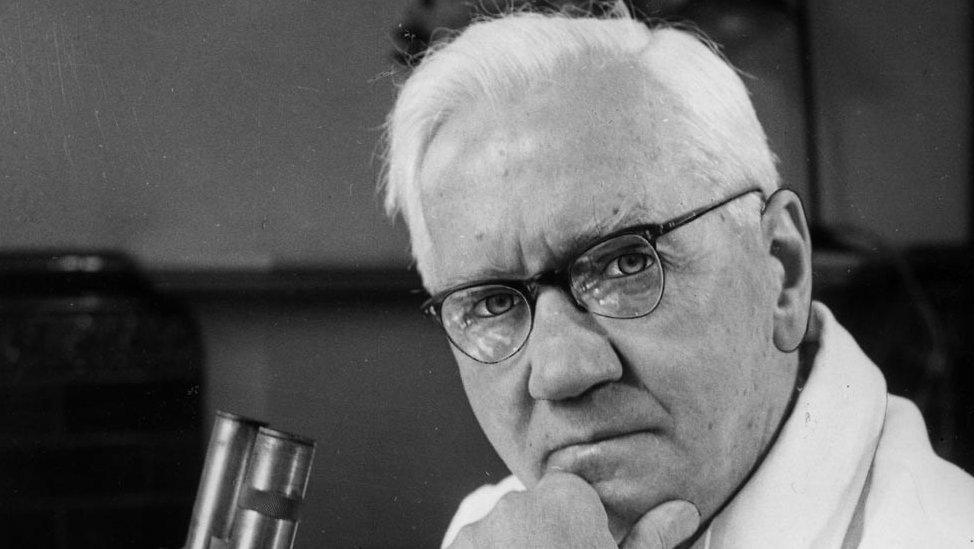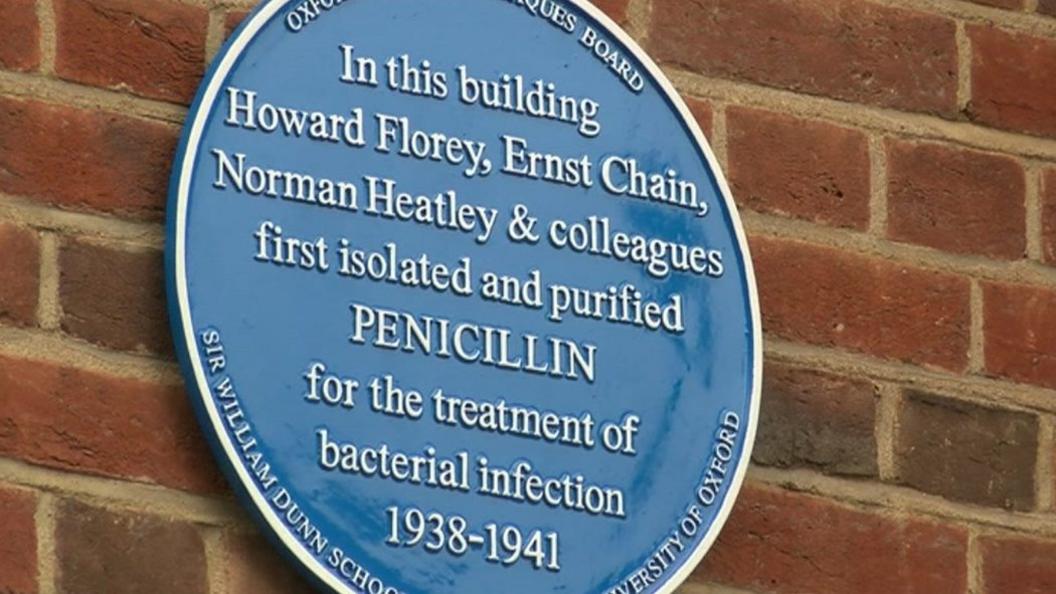Family to tell first penicillin patient's story at conference
- Published

Mr Alexander was injured in the Blitz in Southampton during World War Two.
The family of the first patient to be treated for a bacterial infection with penicillin hope his story will inspire pharmaceutical companies to develop new life-saving antibiotics.
Albert Alexander, from Berkshire, was treated with the antibiotic in Oxford in 1941, demonstrating its effects.
He was injured when serving as a police officer during World War Two.
His 89-year-old daughter is due to join antibiotic experts at a conference in Glasgow to tell her ancestor's story.

Albert Alexander's family said it had been an emotional journey to his home village
Sheila LeBlanc, along with Mr Alexander's two granddaughters, will attend the World Congress of Basic & Clinical Pharmacology in the Scottish city on Monday.
They travelled from their hometown Redlands, in California, to take part in the event.
On a visit to the graveyard in Newbury in which he is buried, they described the journey as "overwhelming".
Granddaughter Linda Willason said "There is really no words - the whole fact we got to come over here, bring [Sheila] and do all this - we're very grateful.
"I think we all take it all for granted - you get sick, you go to the hospital, you get an injection. But this is getting serious now and really something that needs dealt with."
The event follows previous research published in 2022 revealing that more than 1.2 million people died worldwide in 2019 from infections caused by bacteria resistant to antibiotics.
UK health officials previously warned antimicrobial resistance (AMR) was a "hidden pandemic" that could emerge in the wake of Covid-19 unless antibiotics were prescribed responsibly.
Sir Alexander Fleming discovered penicillin in 1928 at St Mary's Hospital in London, but scientists in Oxford developed it into a viable drug.
Born in Woodley, Berkshire, Mr Alexander was on duty when he was injured in an air raid in Southampton and developed blood poisoning.

Sir Alexander Fleming discovered penicillin in 1928
He was transferred to Oxford's Radcliffe Infirmary, where he was treated with the newly-discovered antibiotic, and showed immediate improvement.
But penicillin could not be isolated in time to complete the cure and he died on 15 March 1941.
However, the episode proved penicillin worked on humans and many other people who were injured during the war in the following years benefitted from the antibiotic.
Professor Michael Barrett, a microbiologist at the University of Glasgow, said when looking at the impact of penicillin on the war "timing was everything".
He added: "By having Albert there in that condition to treat at that time and to show the potential to work we probably shaved a year off the Second World War."
But professor Barrett has said there is currently not enough investment into new antibiotics and he has warned that this could lead to a potential crisis.
He will join Mr Alexander's family at the conference in Glasgow.

Follow BBC South on Facebook, external, Twitter, external, or Instagram, external. Send your story ideas to south.newsonline@bbc.co.uk, external.
- Published25 May 2021

- Published29 May 2018
